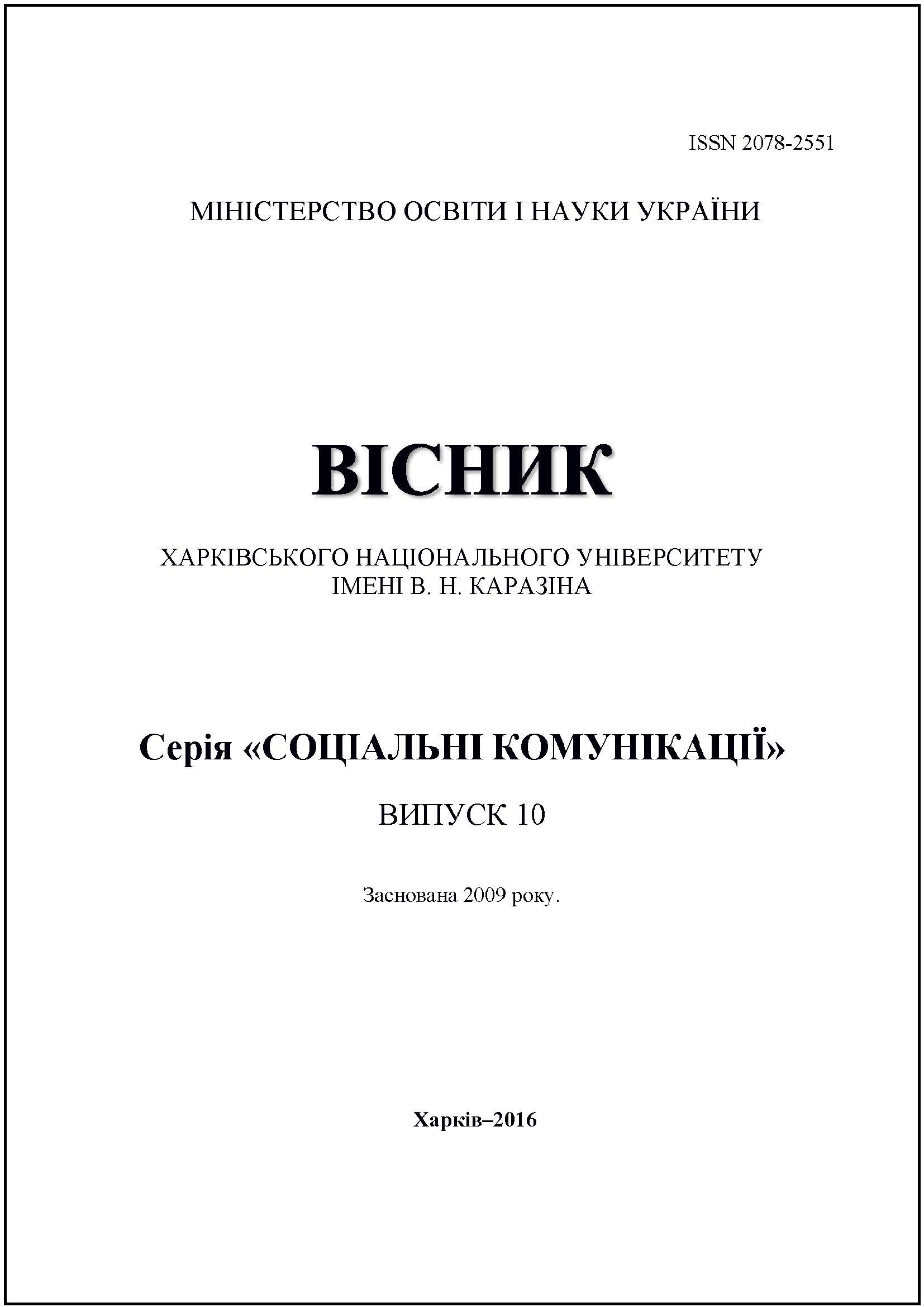Experiments in TV journalism: simulated situation as a way to attract an audience to the game
Keywords:
experiment, infotainment, info-publicistic television projects, Ukrainian television, game, simulated situation
Abstract
The experiment as a current trend among methods of obtaining and supplying information in journalistic materials on Ukrainian television is studied. The popularity of the experiment in television journalism is explained by its compliance to postmodern era and game trends in the media. Simulated conditions intrigue the audience with an unknown end, creating the effect of «here and now» and require the viewer inclusion process and complicity. The audience is not just watching the action deployment, but runs through the situation together with its participants, which leads to greater impact on recipients. The infotainment’s influence on using the simulated situations in TV stories is explored. The classification of the main types of experiments on the criterion of the role of a journalist is promoted: an observer, a moderator or a participant. The negative effects of some innovations, such as the viewer’s entertainment with a loss of the informational component, are shownDownloads
Download data is not yet available.
References
1. Белякова Л. П. Аналитический метод в профессиональной деятельности журналиста / Л. П. Белякова // Веснік БДУ. Серыя 4 : Філалогія. Журналістыка. Педагогіка. — 2014. — № 2. — С. 71—75.
2. Вершинин В. А. Метод эксперимента в журналистике и моделировании прессы / В. А. Вершинин // Журналистский ежегодник. — 2013. — № 2-2. — С. 34–37.
3. Кашинская Л. В. Эксперимент как метод журналистской деятельности / Л. В. Кашинская // Вестник Московского университета. Серия 10 : Журналистика. — 1986. — № 6. — С. 26—34.
4. Ким М. Н. Технология создания журналистского произведения / М. Н. Ким. — СПб. : Изд-во Михайлова В. А., 2001. — 320 с.
5. Лазутина Г. В. Жанры журналистского творчества : учеб. пособ. для студентов вузов / Г. В. Лазутина, С. С. Распопова. — М. : Аспект Пресс, 2011. — 320 с.
6. Малькова Л. Ю. ТВ: игры с документальной формой / Л. Ю. Малькова // Медиаскоп. — 2012. — № 3. — С. 13.
7. Ядов В. А. Социологическое исследование: методология, программа, методы / В. А. Ядов. — Самара : Самарск. ун-т, 1995. — 328 с.
2. Вершинин В. А. Метод эксперимента в журналистике и моделировании прессы / В. А. Вершинин // Журналистский ежегодник. — 2013. — № 2-2. — С. 34–37.
3. Кашинская Л. В. Эксперимент как метод журналистской деятельности / Л. В. Кашинская // Вестник Московского университета. Серия 10 : Журналистика. — 1986. — № 6. — С. 26—34.
4. Ким М. Н. Технология создания журналистского произведения / М. Н. Ким. — СПб. : Изд-во Михайлова В. А., 2001. — 320 с.
5. Лазутина Г. В. Жанры журналистского творчества : учеб. пособ. для студентов вузов / Г. В. Лазутина, С. С. Распопова. — М. : Аспект Пресс, 2011. — 320 с.
6. Малькова Л. Ю. ТВ: игры с документальной формой / Л. Ю. Малькова // Медиаскоп. — 2012. — № 3. — С. 13.
7. Ядов В. А. Социологическое исследование: методология, программа, методы / В. А. Ядов. — Самара : Самарск. ун-т, 1995. — 328 с.
Published
2017-12-06
How to Cite
Бурдіна, Е. О. (2017). Experiments in TV journalism: simulated situation as a way to attract an audience to the game. The Journal of V.N. Karazin Kharkiv National University. Series: Social Communications, (10), 4-9. Retrieved from https://periodicals.karazin.ua/sc/article/view/9794
Section
THEORY AND HISTORY OF JOURNALISM




